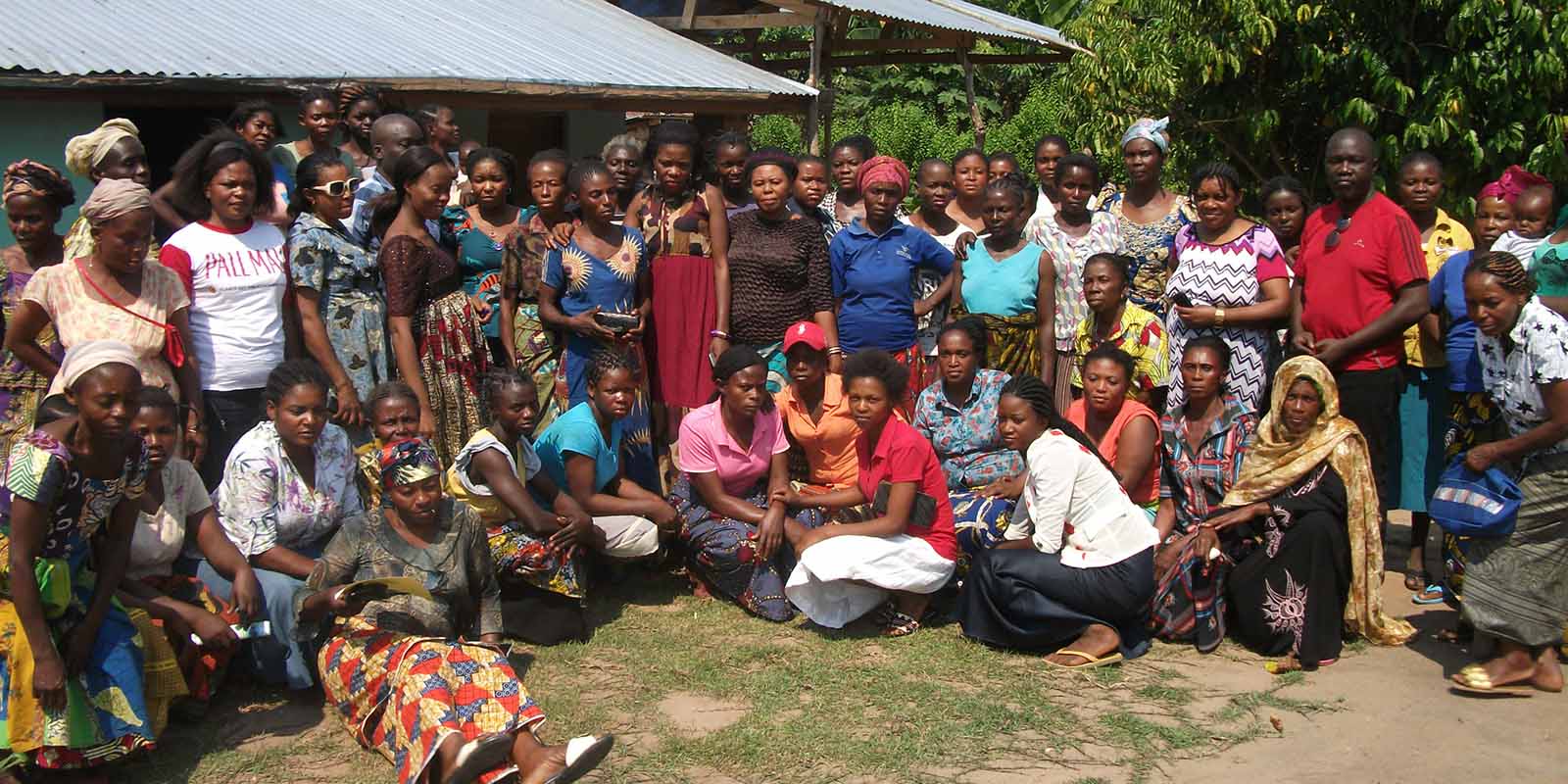At a glance

Coalition des Femmes Leaders pour l’Environnement et le Développement Durable (CFLEDD)
Since its founding in 2011, CFLEDD has grown into a network which now has over 200 members, a mix of organisations and individual women working to advance the rights of women and conserve the natural environment. The network aims to support women in advocating for their rights. For example, in recent years both rights to land and the forest governance code have been reviewed in DRC, and CFLEDD are playing a vital role in ensuring the rights of women are recognised and respected in revisions of the law. In Equateur Province for example CFLEDD have successfully advocated for a change in the provincial law which now includes strong provisions for women’s rights to land and forests.

Members of CFLEDD gather in a community to discuss women’s rights and sustainable management of natural resources. Photo CFLEDD
As well as coordination and support of advocacy at provincial and national levels, CFLEDD also work to build the capacity of female leaders in Congolese civil society. They conduct workshops to inform and engage women on topics such as gender equality, natural resource protection and participation in decision making. They also aim to mobilise funds for the work of CFELDD’s member organisations and to improve their functioning by offering support in leadership training and organisational development.
Synchronicity Earth began support for CFLEDD in 2018 and we see the network playing a key role in ensuring women’s rights are recognised in the new land and forest governance codes.

